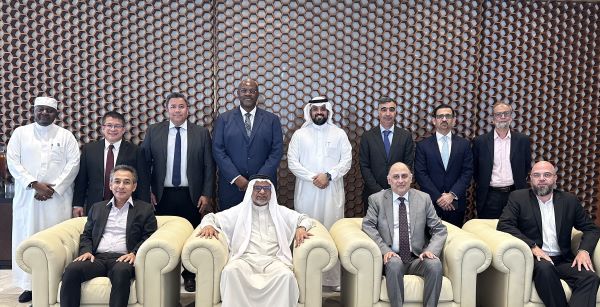Manama: Mahmood Rafique, Editor: The International Islamic Financial Market (IIFM) said that would start the standardization of syndicated Ijarah and syndicated Murabaha financing documentation process.
The Board of Directors, in its 49th meeting, hosted by the Saudi National Bank at its office in Jeddah has given an approval to initiate the process based on feedback received from IIFM’s industry assessment exercise.
This was announced on the sidelines of two-day AAOFI-IsDB Annual Islamic Banking and Finance Conference on Wednesday.
The Board appreciated the financial assistance grant from the Islamic Development Bank Institute in supporting this important project. The standards development will commence early 2024 in consultation with the industry.
To enhance liquidity management products for Islamic banks, the Board also approved the plan to develop a global standardized Shari’ah-compliant Repo documentation that will provide a tool to manage liquidity which in turn will help the market to expand in an orderly manner. IIFM has completed the industry assessment exercise in this area and will soon commence its standards development process in consultation with the industry during early 2024.
Among other priority initiatives, the Directors were briefed on the progress of the joint IIFM and the International Swaps and Derivatives Association (ISDA) initiative on carrying out operational improvements to existing hedging product confirmations; namely the Islamic Profit Rate Swap (IPRS) and the Islamic Cross Currency Swap (ICRCS). The purpose is to simplify the transaction process by segregating the annexes from the master terms and conditions. The industry consultation exercise has been completed and the new versions of the IPRS and ICRCS will be available soon.
“Standardization is a key element of the financial services industry and IIFM as well as other Islamic standard-setting bodies are extensively working on creation of transparent, robust and harmonized standards,” Khalid Hamad Al-Hamad, Chairman of IIFM, said.
“The number of financial institutions using IIFM documents is progressing in a number of jurisdictions and the banks benefit tremendously from use of these high level standards by saving on legal documentation related costs and time efficiency in terms of negotiation and execution of transactions. This also promotes uniform practices globally resulting in minimization of operational risk, creation of legal certainty and facilitation of Shari’ah harmonization for the sustainable development of the industry.”
“The most important aspect in developing global standards is the process which starts with market assessment and establishment of industry requirements followed by extensive industry consultation on market practice, operational issues, regulatory and legal requirements and most importantly Shari’ah considerations. This process leads to development of strong standards covering all aspects as well as widely acceptable Shari’ah rulings which are of paramount importance,” Ijlal Ahmed Alvi, Chief Executive Officer of IIFM, said.
“It is essential to have a body that sets the standards for documents pertaining to Islamic transactions, especially for standard streamlined commercial banking transactions. It is of utmost importance for Islamic banking to compete and thrive in the banking world by having such standards. It makes it easy for counterparts to enter bilateral transaction efficiently and effectively. And it becomes feasible for international counterparts to do Islamic banking together. I urge the Islamic banking community to support IIFM to cover more transaction types to enhance the Islamic banking industry,” Hamza Bawazir, EVP, Head of Shari’ah Division, Legal & Counseling Group at the Saudi National Bank and a Director on IIFM Board, said.
The Directors reviewed a new social development initiative spearheaded by Indonesia, for IIFM to carry out an industry wide consultation on this Corporate Social Responsibility concept and its documentation related requirements for other Islamic jurisdictions.
Some other initiatives discussed at the meeting included increasing the now well recognized practically oriented training workshops on IIFM’s published standards given its value in terms of capacity building. Considering the demand for such trainings, the Directors approved a plan to expand the workshops to be organized in different jurisdictions.
In terms of value addition, the success of the annual IIFM Sukuk Report which is now globally recognized as one of the main sources of information on the Sukuk market, the Directors also suggested IIFM to propose producing another report on a current topic deemed important for the industry’s continued development.
The Directors also deliberated on the proposal to hold an annual flagship conference and decided to continue with the planning process for organizing the event in the coming year.



